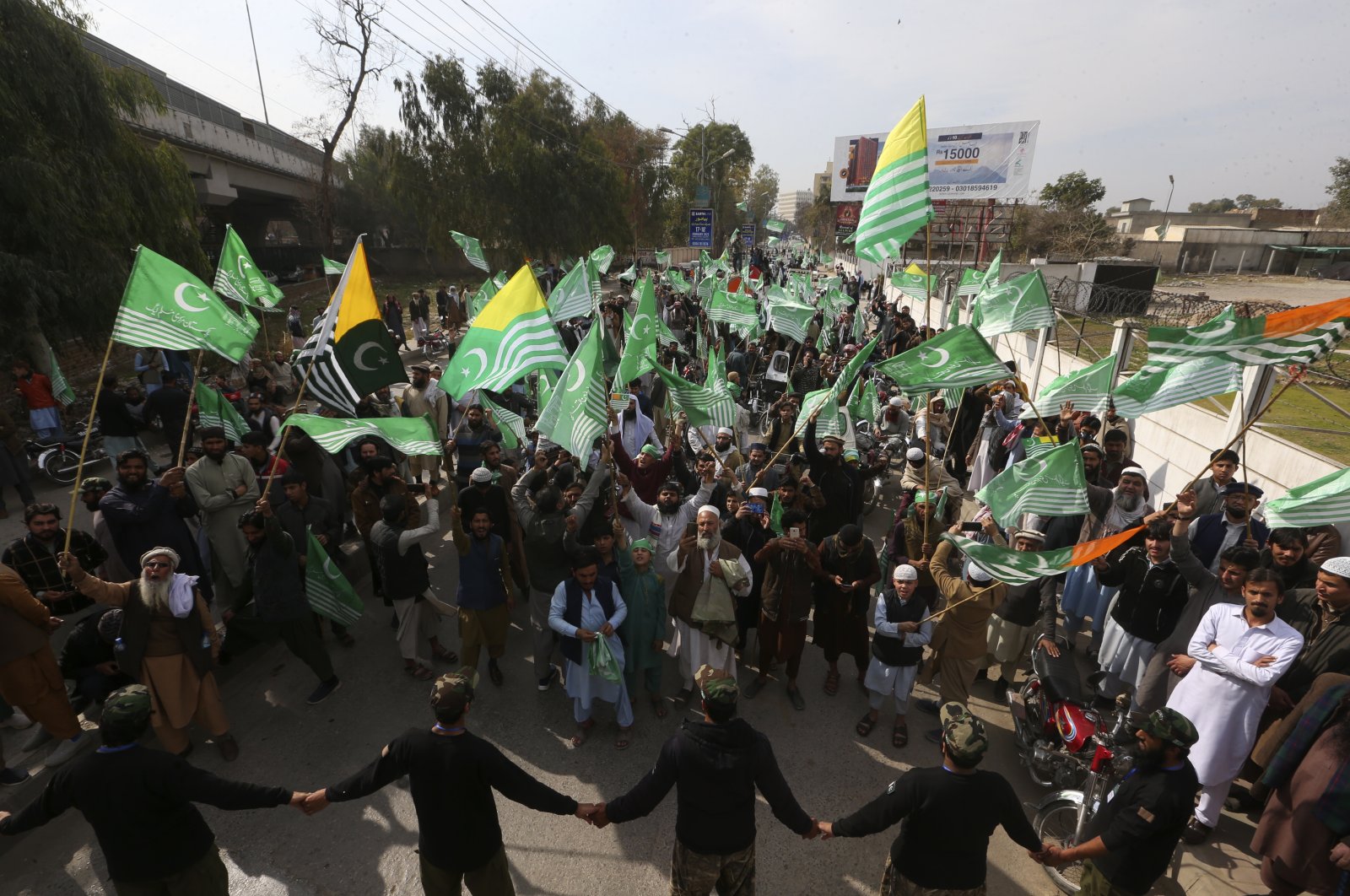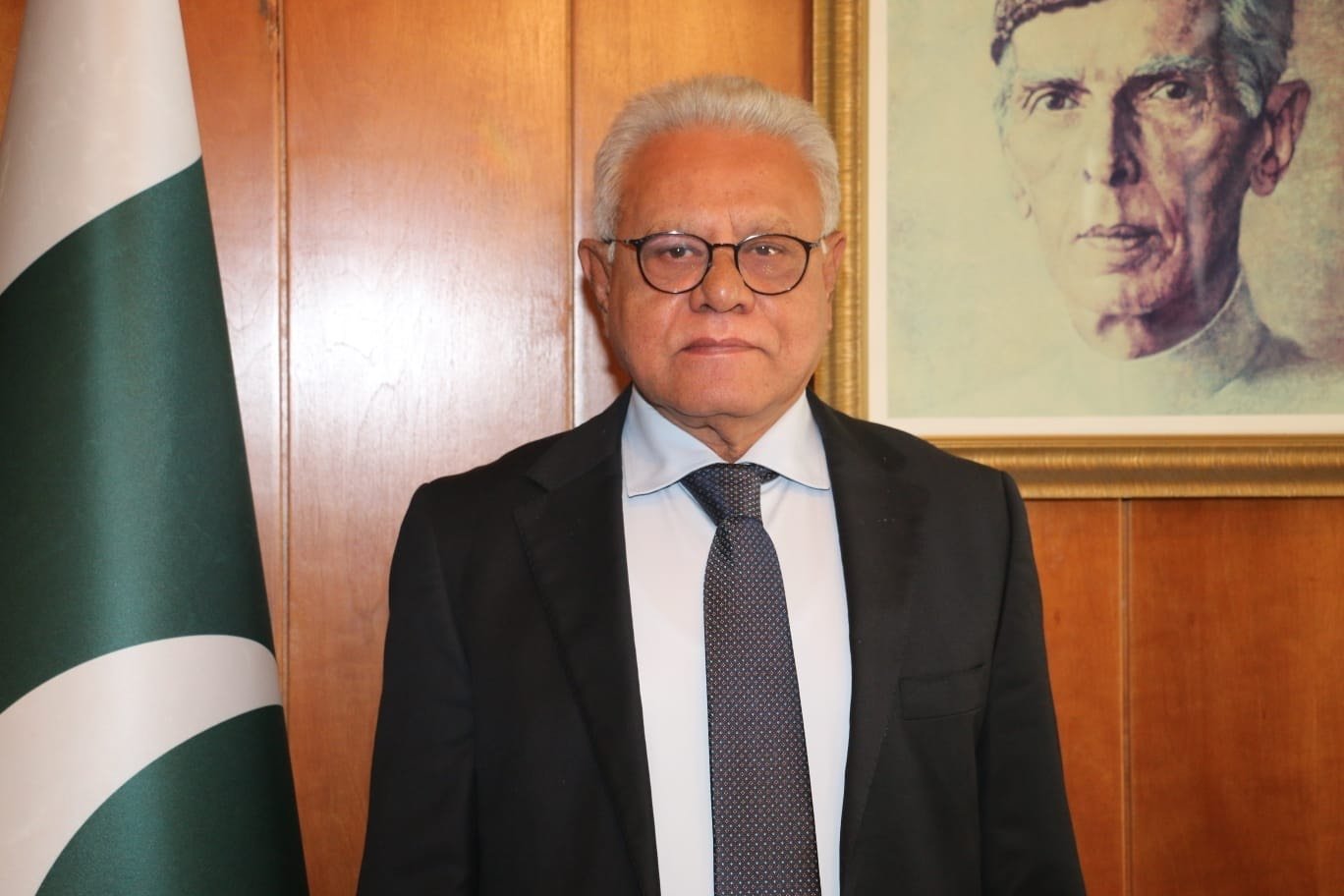
The Palestine and Kashmir conflicts reveal international system failures, where the weak suffer under occupation and the powerful act with impunity, emphasizing the need to recognize that 'Kashmiri lives matter'
Pakistanis, Kashmiris and freedom-loving people across the world commemorate Oct. 27 as "Kashmir Black Day."
Every year, Black Day serves as a painful reminder of the failures of international law and systems in preventing and addressing illegal occupations and atrocities and ensuring fundamental human rights for all. This day reminds us that even after seven decades, Kashmiris continue to languish under foreign occupation and suffer daily violations of their fundamental rights in wait for the fulfillment of the promises made by the international community and above all India – the right of self-determination.
This day, 76 years ago, India began the physical occupation of Kashmir by sending its armed forces to Srinagar with the sole purpose of robbing Kashmiris of their birthright of self-determination. This illegal invasion was a blatant violation of the partition plan. Under the partition formula, Muslim-majority areas were to join Pakistan, geographical contiguity permitting, and Hindu-majority areas were to constitute India. The overwhelming Muslim population of Kashmir had closer cultural and religious affinities and a much longer boundary with Pakistan than India.
Gauging the Kashmiri desire to join Pakistan, India cooperated with Kashmir’s unelected absolute ruler, the Maharaja of Kashmir, and landed its forces in Kashmir on Oct. 27, 1947, marking the beginning of a long and tragic dispute with long-lasting consequences for regional peace and security.
Kashmiris resisted Indian invasion
The Kashmiris resisted the illegal Indian invasion politically and through indigenous freedom struggle. The matter was taken to the United Nations Security Council in January 1948. The Security Council adopted a resolution, stating that the final disposition of Jammu and Kashmir will be determined in accordance with the will of the people of Kashmir, expressed through a free and fair plebiscite, conducted under the auspices of the U.N., to which both India and Pakistan agreed. Unfortunately, India had no intention of honoring its pledge. Instead, its pledges were only to continue its illegal occupation through brutal persecution and oppression of the people.

However, despite utilizing all tools of oppression, severe human rights violations, including communication black-outs, night raids, torture, sexual assault, forced disappearances, cordon and search operations, and bulldozing of properties, India has failed to crush the Kashmiris’ indomitable spirit for freedom. The most outrageous step, as part of the systematic oppression of Kashmiris, was taken four years ago on Aug. 5, 2019, when India sent additional hundreds of thousands of its troops to Jammu and Kashmir following its unilateral and illegal attempt to alter the disputed status of the occupied territory. The Indian machinery aimed at changing the demographic composition of the region by settling non-Muslim outsiders in the occupied region to convert the local Muslim majority into a minority in their own homeland. With most of the Kashmir leadership either in jail or under house arrest, especially after Aug. 5, 2019, the Kashmiri people’s struggle for freedom and self-determination continues, confounding the Indian government and its strong occupation forces in Kashmir.
Kashmiri lives matter
Oct. 27 serves as a stark reminder for the international community and guarantors of global peace, of the need to introspect – how is it that the Jammu and Kashmir dispute, the oldest item on the U.N. agenda and a proven flashpoint between two nuclear-armed countries, is no closer to resolution? Why is it that despite a slew of Security Council resolutions recognizing the Kashmiris’ right to choose their own destiny, they are still awaiting the opportunity to exercise self-determination? How can we continue to speak of an international rules-based order when one country can so brazenly thumb its nose at international law and norms?
Lingering conflicts in Palestine and Kashmir highlight the bitter reality that the international system has failed to deliver on its promises, as the weak continue to languish under occupation and the powerful continue to kill with impunity. Injustice anywhere is a threat to justice everywhere. I hope that the world understands that "Kashmiri lives matter." The blood that gets spilled at the hands of occupation forces is a stain on the repute of institutions meant to uphold human rights.
It is high time to stand up for justice, uplift the oppressed voice of Kashmir and fulfill the promises made to Kashmiris by the international community and India – a free and fair plebiscite under the auspices of the United Nations. For peace, justice has to prevail and black days need to go, and so does the illegal Indian occupation of Kashmir.
Pakistan, as well as the people with conscience, have and will always stand with Kashmiri brothers and sisters by extending all political, diplomatic and moral support to their just and legitimate cause of self-determination.
